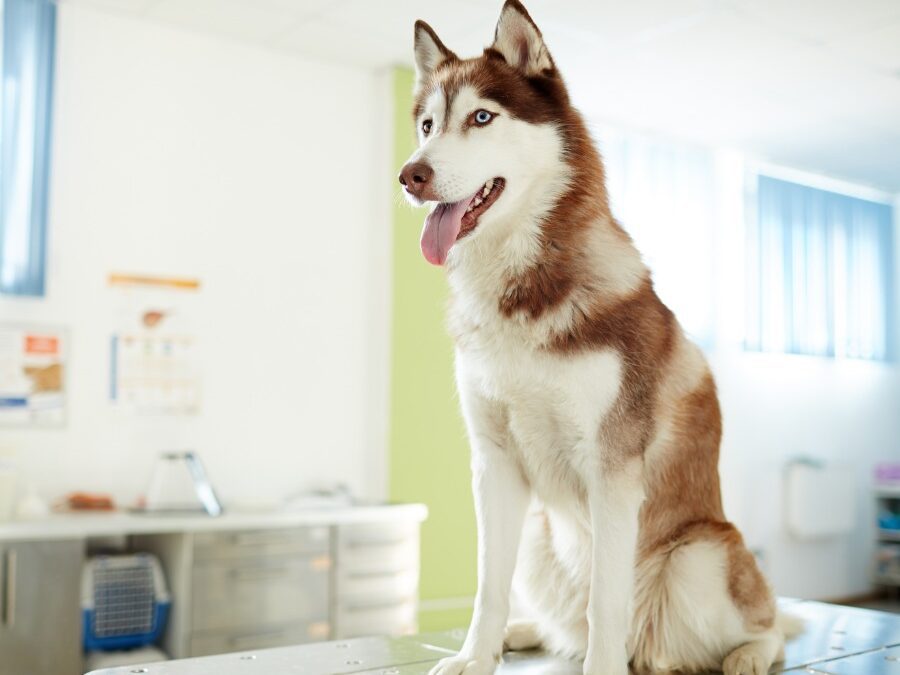Introduction
Pancreatitis is a serious and potentially life-threatening condition that affects dogs of all breeds and ages. It occurs when the pancreas, an essential organ responsible for digestion and insulin production, becomes inflamed. This inflammation causes the digestive enzymes produced by the pancreas to activate prematurely, leading to the digestion of pancreatic tissue itself. This condition can be acute (sudden and severe) or chronic (recurring and long-term), and it requires prompt attention to prevent severe complications.
Causes of Pancreatitis in Dogs
There are several factors that can contribute to the development of pancreatitis in dogs, including:
- Dietary Factors:
- Consumption of high-fat foods, such as table scraps, greasy meals, or fatty treats.
- Sudden changes in diet or ingestion of rich, unfamiliar foods (common during holidays).
- Obesity:
- Overweight dogs are at a higher risk due to the increased strain on their pancreas to process fats.
- Certain Medications:
- Some medications, such as corticosteroids and certain chemotherapy drugs, have been linked to an increased risk of pancreatitis.
- Underlying Health Conditions:
- Diseases such as diabetes, hypothyroidism, and Cushing’s disease can predispose dogs to pancreatitis.
- Genetic predisposition, with breeds such as Miniature Schnauzers, Yorkshire Terriers, and Cocker Spaniels being more susceptible.
- Toxins and Ingested Substances:
- Exposure to harmful substances like pesticides, spoiled food, or certain household chemicals.
- Trauma and Surgery:
- Physical trauma to the abdomen or complications following surgery can trigger inflammation in the pancreas.
Symptoms of Pancreatitis in Dogs
The symptoms of pancreatitis can vary in severity, but common signs include:
- Persistent vomiting
- Diarrhea (often greasy or foul-smelling)
- Loss of appetite
- Lethargy and weakness
- Abdominal pain (displayed by a hunched posture or reluctance to move)
- Fever
- Dehydration
- Distended or bloated abdomen
Severe cases can lead to life-threatening complications, including organ failure, if not addressed promptly.
Preventing Pancreatitis in Dogs
Although pancreatitis cannot always be entirely prevented, several measures can help reduce the risk of occurrence:
- Maintain a Low-Fat Diet:
- Feed your dog a well-balanced, low-fat diet as recommended by your veterinarian.
- Avoid giving table scraps, fatty treats, or processed human foods such as bacon and fried items.
- If your dog has a history of pancreatitis, consider switching to a prescription diet specifically formulated for pancreatic health.
- Proper Portion Control and Weight Management:
- Obesity increases the risk of pancreatitis, so it is important to maintain an ideal body weight.
- Regular veterinary check-ups to monitor weight and adjust diet accordingly.
- Regular Exercise:
- Physical activity helps to regulate metabolism and maintain a healthy weight.
- Daily walks and playtime can contribute to overall well-being.
- Gradual Dietary Transitions:
- Sudden dietary changes can upset the digestive system and trigger pancreatitis.
- Introduce new foods gradually over several days to allow the digestive system to adjust.
- Avoid Dangerous Foods and Toxins:
- Keep garbage and rich, fatty foods out of reach.
- Be cautious with feeding leftovers, especially during festive seasons when high-fat foods are more common.
- Medication Awareness:
- If your dog is on long-term medications, discuss potential side effects with your veterinarian to assess their impact on pancreatic health.
Managing Pancreatitis in Dogs
If your dog is diagnosed with pancreatitis, treatment will focus on relieving symptoms and preventing further complications. Common management strategies include:
- Supportive Care:
- Hospitalization for intravenous fluids to prevent dehydration.
- Pain relief medications and anti-nausea drugs to ease discomfort.
- Dietary Changes:
- Transitioning to a bland, easily digestible, low-fat diet to ease pancreatic workload.
- Gradual reintroduction of regular food under veterinary guidance.
- Rest and Monitoring:
- Limit physical activity to allow the body to recover.
- Monitor for signs of recurrence and report any concerns to your veterinarian promptly.
- Long-term Management:
- Dogs with chronic pancreatitis may require lifelong dietary modifications and regular check-ups.
Conclusion
Pancreatitis in dogs is a serious condition that requires careful attention to diet and lifestyle. By maintaining a healthy weight, providing a low-fat diet, and avoiding unnecessary dietary risks, pet owners can significantly reduce the likelihood of their dogs developing pancreatitis. Early detection and intervention are crucial to ensuring a good prognosis and maintaining your dog’s quality of life. If you suspect your dog is showing signs of pancreatitis, seek veterinary care immediately for proper diagnosis and treatment.

